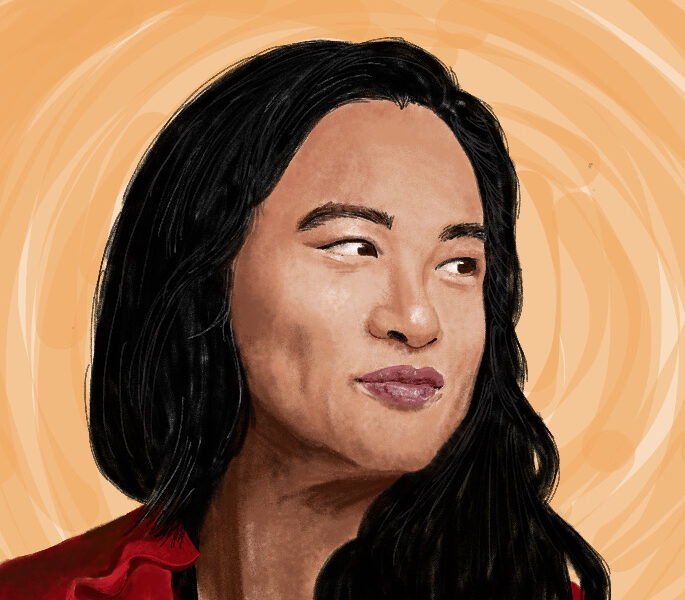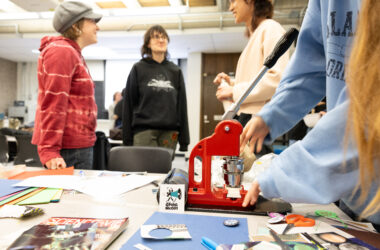Attendees shed tears of queer solidarity on the evening of Oct. 22 as author and somatics teacher, Kai Cheng Thom, addressed McGill during the university’s annual keynote speech for Queer History Month. The event, ‘Remembering Resilience: Embodying the Queer Legacies in Uncertain Times,’ opened with a land acknowledgement appreciating the night’s rain and emphasizing that humans are not superior to the land they inhabit.
Tynan Jarrett, director of the Equity Team in McGill’s Office of the Provost and Executive Vice-President Academic, then introduced Thom as his previous student at McGill, briefly describing Thom’s activities on campus before commenting on the importance of Queer History Month.
“Queer History Month is more than a celebration. It is a call to honour the lives, struggles, and triumphs [of] those who came before, to connect our struggle to theirs, and to move forward stronger,” Jarrett noted.
Director of McGill’s School of Social Work, Nicole Ives, continued the introduction, outlining Thom’s impressive accomplishments since graduating from McGill.
“[Kai] is [an] award-winning writer, performer, and creative arts facilitator, whose work delves deeply into the themes of revolutionary love, transformative justice, spirituality, and healing from collective trauma,” Ives said. “I know I speak for my colleagues who are here from the School of Social Work, and I speak for myself, saying how thankful we are that she is here to share her vision for how we can transform society into a more socially just and humanist world.”
As Ives concluded the introduction, Thom approached the stage and shared a hug with Ives before addressing the crowd. She began with a prayer centring love: “Love that heals, love that speaks, love that tells the truth, the whole truth, the ugly truth, nothing but the truth, love that sees it all and yet keeps moving anyway.”
Shortly thereafter, Thom admitted her complicated relationship with McGill while offering gratitude for the opportunity to speak at the university. She described the mix of emotions she feels as a trans woman and as a changemaker who has evolved from admiring veteran activists to //becoming// one of those veteran activists, despite few corresponding societal improvements for the trans community.
Demonstrating her expertise, Thom then led a short somatic practice, instructing the group to find their length, find their width, and find their depth physically within their bodies. She then encouraged attendees to take a moment, breathe, and orient themselves within what they have been noticing about their social landscape. She concluded the somatic practice, with many participants crying silent tears and loud cries of relief, before continuing to speak on resilience and resistance for queer activists.
“The resilient edge of resistance is a term that comes to us from somatic trauma therapy. It refers to the ability to feel stress and even distress, while remaining grounded, centred, connected, crucially connected,” she described. “And my offer to you about this term resilience, […] is that it can be about resistance having more emotion, actually having more sensation, more feeling, but not in a way that fragments, that leaves us feeling despair, […] [but] in a way that leaves us feeling more connected […] to ourselves. Resilience is not about toughness or being superior to others, and I believe that the great mothers of queer and trans history knew this.”
As her speech concluded, Thom spoke to the feeling of hopelessness common to lifelong activists who fail to see results from their advocacy, quoting Ursula K. Le Guin, who stated that when living under capitalism, its power seems unescapable. But, Le Guin said, so did the divine right of kings. Thom urged the crowd to remember that human power goes both ways: Any human system can be resisted and changed by human beings. And for human beings to stand strong under pressure and see the change they want to make, she emphasized, they must work together.
“Love survives, love revives, love redeems, love forgives,” she finished.









